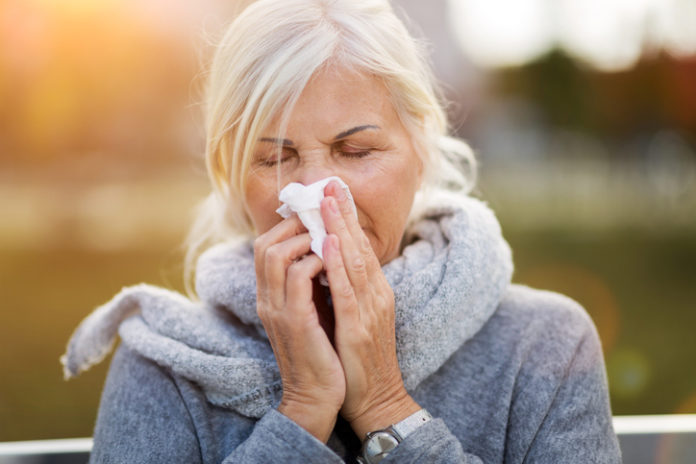Older Australians can receive a high-dose four-strain influenza vaccine to give protection against flu this winter.
Fluzone High-Dose Quadrivalent is available on private prescription from a doctor or pharmacist for the prevention of influenza in people aged 60 years and older.
Infectious diseases expert Professor Paul Van Buynder from the Griffith University School of Medicine welcomed the availability of the Fluzone High-Dose Quadrivalent vaccine for this age group noting that it is:
• The first time Australians as young as 60 can access a vaccine other than a standard dose influenza vaccine through their local pharmacy or GP.
• The first time a four-strain high-dose influenza vaccine has reached Australian shores.
“While adults aged 65 and older and those who are medically at-risk are eligible for other influenza vaccines free of charge via the National Immunisation Program, this is the first high dose influenza vaccine indicated for Australians as young as 60,” Professor Van Buynder said.
“This is a welcome option for older Australians and in particular the 1.5 million Australians aged 60 – 64 ahead of what may be a rebound influenza season resulting from less herd immunity over the past couple of years.
“We know that older Australians are more likely to be hospitalised with influenza than their younger counterparts.
“Effective vaccination is paramount in reducing influenza, related deaths, hospitalisations and associated complications, such as pneumonia and serious cardiovascular events,” he said.
Fluzone High-Dose Quadrivalent will be available on private prescription at a cost of approximately $65 to $70. Private health insurance may reimburse some or all of the cost of the vaccine, depending on the person’s level of cover.
Containing four times the antigen (or active ingredient) of a standard dose influenza vaccine, Fluzone High-Dose Quadrivalent stimulates the immune system, boosting the production of influenza-protective antibodies.
While influenza affects people of all ages, older Australians are at increased risk of serious complications. This is often due to the gradual deterioration of the immune system as people get older.
Prior to the COVID-19 pandemic, which resulted in two years of record-low rates of influenza due to lockdowns, social distancing, and improved hand hygiene, approximately 56% of all hospital admissions due to influenza occurred in Australians aged 60 years and older.
“There is a common misperception that influenza, or ‘the flu’, is just a bad cold that might put you in bed for some time. Unfortunately, that is far from the truth,” Professor Van Buynder said.
“It’s important that the community, particularly the elderly and those with health issues, recognise the real risks posed by influenza,” he said.
“All adults should be vaccinated against influenza, and I encourage older Australians to speak with their doctor about how to best protect themselves against influenza this flu season,” Professor Van Buynder said.
Dr Iris Depaz, Head of Medical, Sanofi Pasteur Australia and New Zealand said: “As a leader in vaccines, Sanofi continues to deliver innovations that help optimise protection against nfectious diseases, including influenza.”
Adults aged 65 and older and those who are medically at risk have access to free influenza vaccines via the National Immunisation Program and should consult their healthcare professional for more information on these vaccines.


